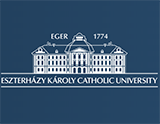Detailed introduction of Eszterházy Károly University of Applied Sciences:
Introduction
Eszterházy Károly University of Applied Sciences is an influential applied university in Hungary. It has trained a large number of professionals for Hungary and the international community, and has outstanding teaching and scientific research results in many disciplines.
Overview
Student size: The school has a total of about 6,000 students.
Faculty: It has 800 full-time faculty and staff, with a teacher-student ratio of 8:1.
History
The school was founded in 1774 by Bishop Eszterházy Károly of Hungary in Eger. It is one of the oldest higher education institutions in Hungary. Its initial establishment made important contributions to the development of education and culture in Hungary. With the passage of time, it has continued to grow and adapt to the needs of the times.
School Strength
Teaching Resources and Facilities: The school has complete teaching facilities, modern teaching buildings, laboratories, libraries and other teaching resources, providing students with a good learning environment. For example, its library has a rich collection of books covering multiple disciplines, which can meet the learning and research needs of students.
Scientific research cooperation and academic achievements: The school has performed well in scientific research, and has published 1,506 scientific papers, which have been cited 11,446 times. The research fields cover biology, environmental science, humanities and social sciences, ecology, engineering and other disciplines. The school actively carries out international scientific research cooperation and has established cooperative relations with many foreign universities and scientific research institutions, which has improved the school's scientific research level and international influence.
Institutional nature
Public non-profit university.
Educational philosophy
The school is committed to becoming a university, knowledge, culture, service and information center in Europe, countries and regions, providing students with high-quality, flexible and collaborative education, cultivating students with solid professional knowledge and the ability to adapt to the labor market, ensuring that students can be competitive in the job market after graduation, and focusing on jointly developing courses with foreign higher education institutions to improve the internationalization level of education.
Key laboratories and disciplines
Key disciplines: Biology, environmental science, humanities and social sciences have relatively large number of papers published and cited, which are the school's advantageous disciplines. In addition, disciplines such as engineering, physics, chemistry, and computer science also have certain strengths, providing students with a variety of professional choices.
Key laboratories: Although no specific key laboratories are explicitly mentioned, from the perspective of their disciplinary advantages, relevant professional laboratories should be equipped in disciplines such as biology and environmental science to support teaching and scientific research.
Faculty
Faculty of Humanities: including the Institute of Language and Literature, the Department of Applied Communication, the Department of Hungarian Literature, etc., covering multiple disciplines such as Hungarian history, world history, philosophy, music, visual arts, etc.
Faculty of Teacher Training and Knowledge Technology: including the Institute of Media Informatics, the Department of Informatics, the Department of Film Culture, etc., as well as independent departments such as adult education, ethnic and minority studies, education, psychology, and social education.
Faculty of Economics and Social Sciences: including the Institute of Economic Sciences, the Department of Business Administration, the Department of Tourism, etc., as well as independent departments such as Communication and Media Science and Political Science.
Faculty of Natural Sciences: including the Institute of Mathematics and Informatics, the Institute of Biology, the Institute of Food Science, etc., covering multiple disciplines such as applied mathematics, information technology, computer science, zoology, plant physiology, and environmental science.
Ranking
Ranked 3276th in the 2024 global university rankings, 956th in Europe, and 17th in Hungary.
Expenses
Tuition fees: 1,500 euros per semester for undergraduates, 1,800 euros per semester for masters, and 2,000 euros per semester for doctoral students. Euro.
Application fee: It depends on the specific major and application requirements, which can be checked on the school's official website.
Campus
Location and environment: The main campus is located in Eger, Hungary, a city with a long history and profound cultural heritage. Campus buildings are distributed throughout the city. The largest and oldest building is the Baroque-style academy, which provides students with a unique learning and living atmosphere.
Campus facilities: In addition to teaching facilities, the campus is also equipped with student dormitories, canteens, sports stadiums and other living facilities to meet students' daily needs. In addition, the school also has service agencies such as the Natural Science Career Guidance and Method Center to provide students with support in learning and career development.
-
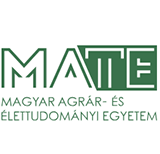
Hungarian University of Agriculture and Life Sciences
-
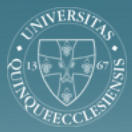
University of Pécs
-
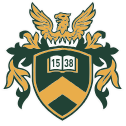
University of Debrecen
-

Budapest University of Technology and Economics
-
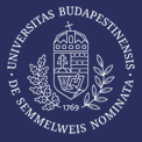
Semmelweis University
-

University of Pannonia
-
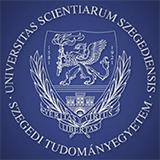
University of Szeged
-
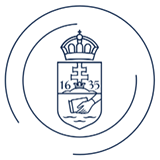
Eötvös Loránd University
-
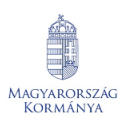
University of Miskolc
-

University of Sopron
-

Mesoamerican University
-

Istmo University
-

Mariano Galvez University of Guatemala
-

Regional University of Guatemala
-

Galileo University
-

Francisco Marroquín University
-

Rafael Landívar University
-

University of the Valley of Guatemala
-

University of San Carlos of Guatemala
-

Technological Institute of Tlaxcala Plateau
-

Golfo University
-

Technological University of South Sonora
-

Technological University of Huejotzingo
-

Tizimín Institute of Technology
-

Chilpancingo Institute of Technology

